
Rocky Mountain coal mine in Alberta takes next step to expansion
In Alberta, a massive open-pit coal mine near Jasper National Park is hoping to expand...
It was calling for rain in Nelson, B.C., on Friday, but the clouds parted and the sun began to shine as hundreds of people gathered by the water at Rotary Lakeside Park. Shelly Boyd took the stage to welcome people to her territory.
“This is so beautiful, seeing so many of our people here,” she said.
After waiting more than a year due to COVID-19 restrictions, about 100 Sinixt people came from Washington state to celebrate their major court victory alongside local residents and First Nations leaders. In April 2021, the Supreme Court of Canada recognized their inherent Indigenous Rights to hunt and harvest in their territory in B.C., over a century after the Canada and U.S. governments began pushing their ancestors south of the border. For decades, they were denied their Indigenous Rights in much of their territory.
This weekend, still feeling the joy of their success, they shared food, songs, dances and prayers — and burned the government papers that sought to erase them.
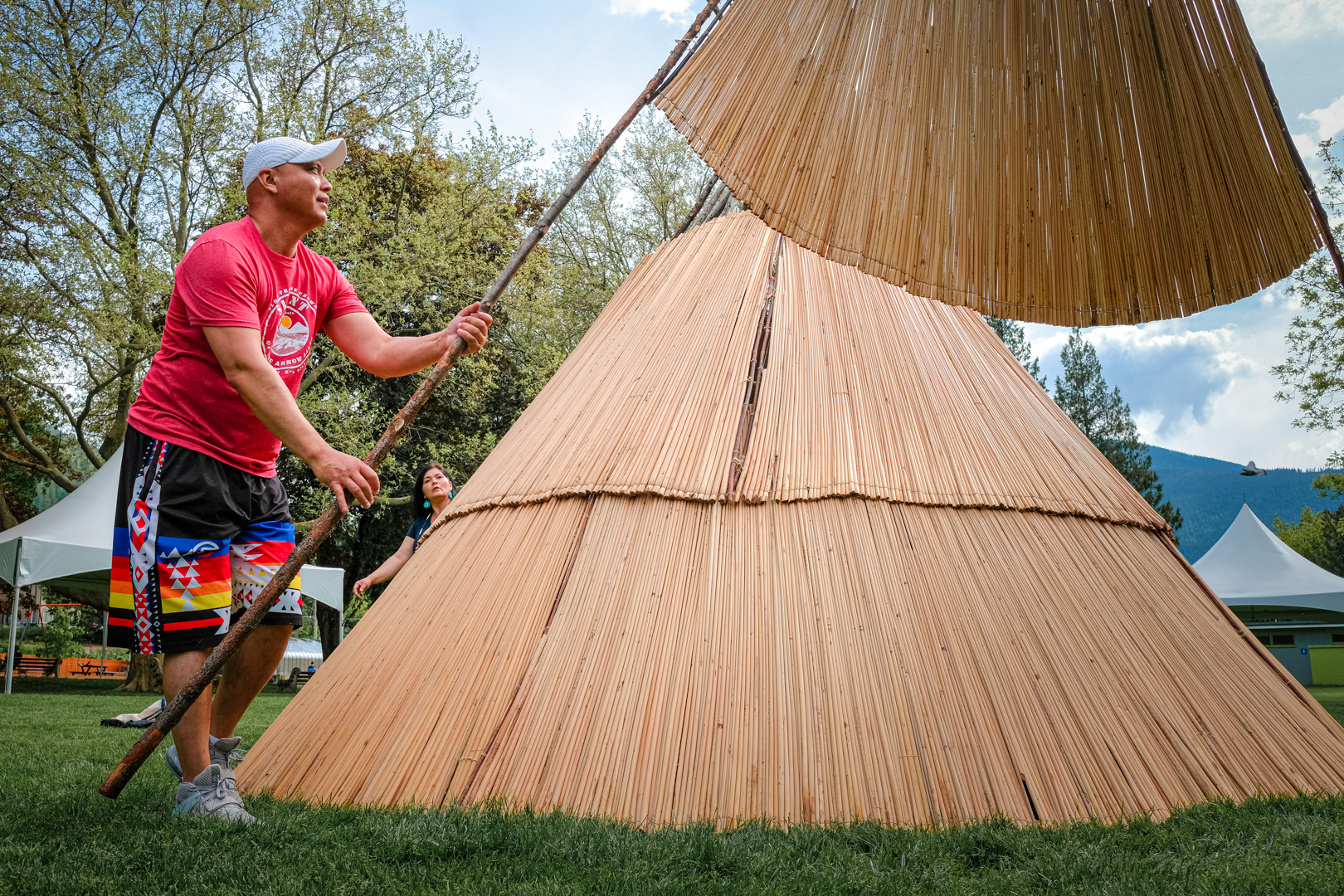
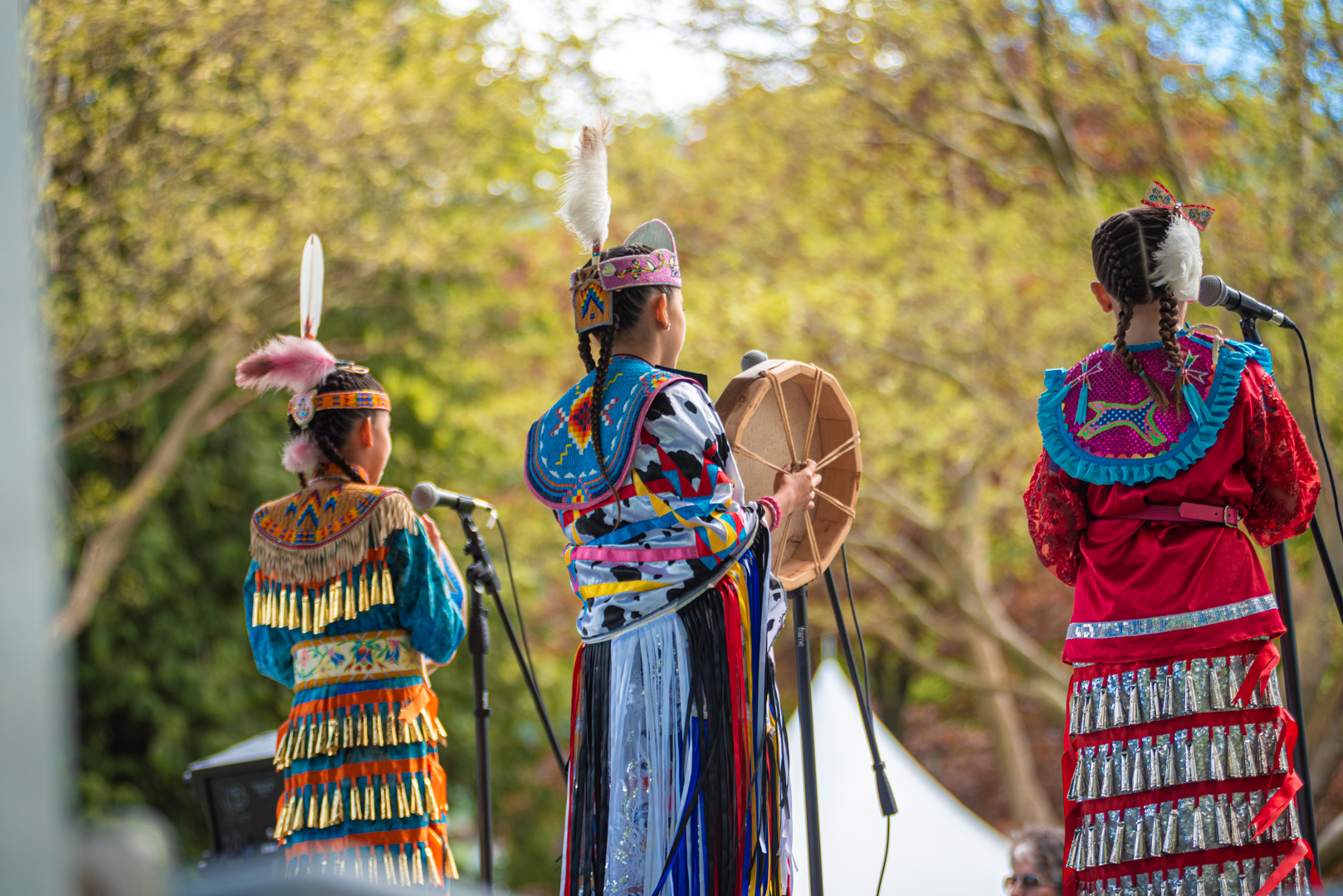
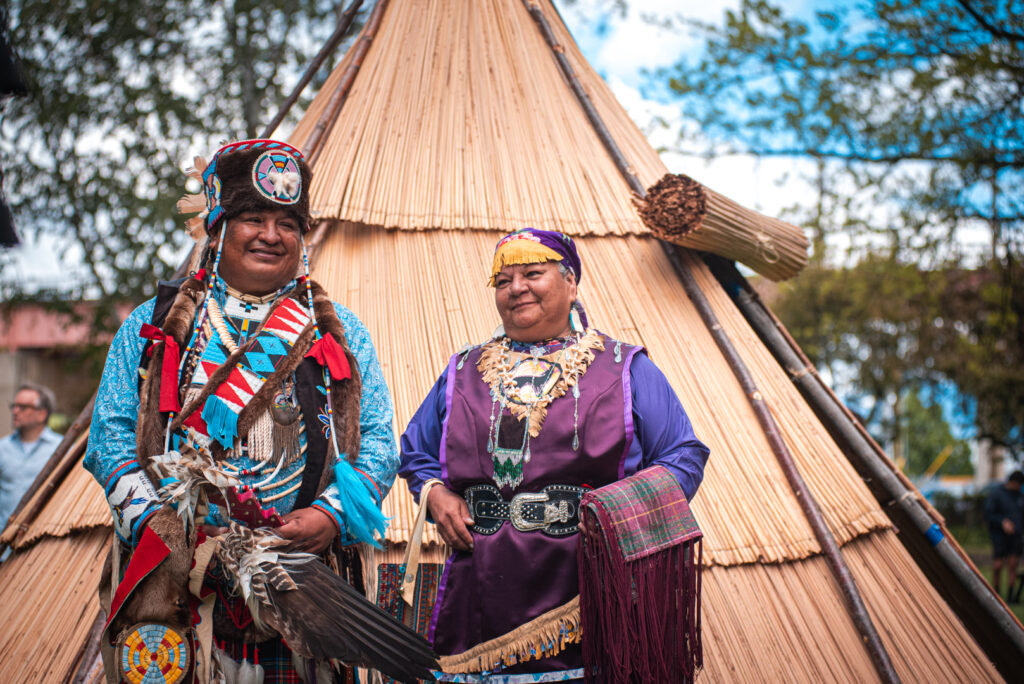
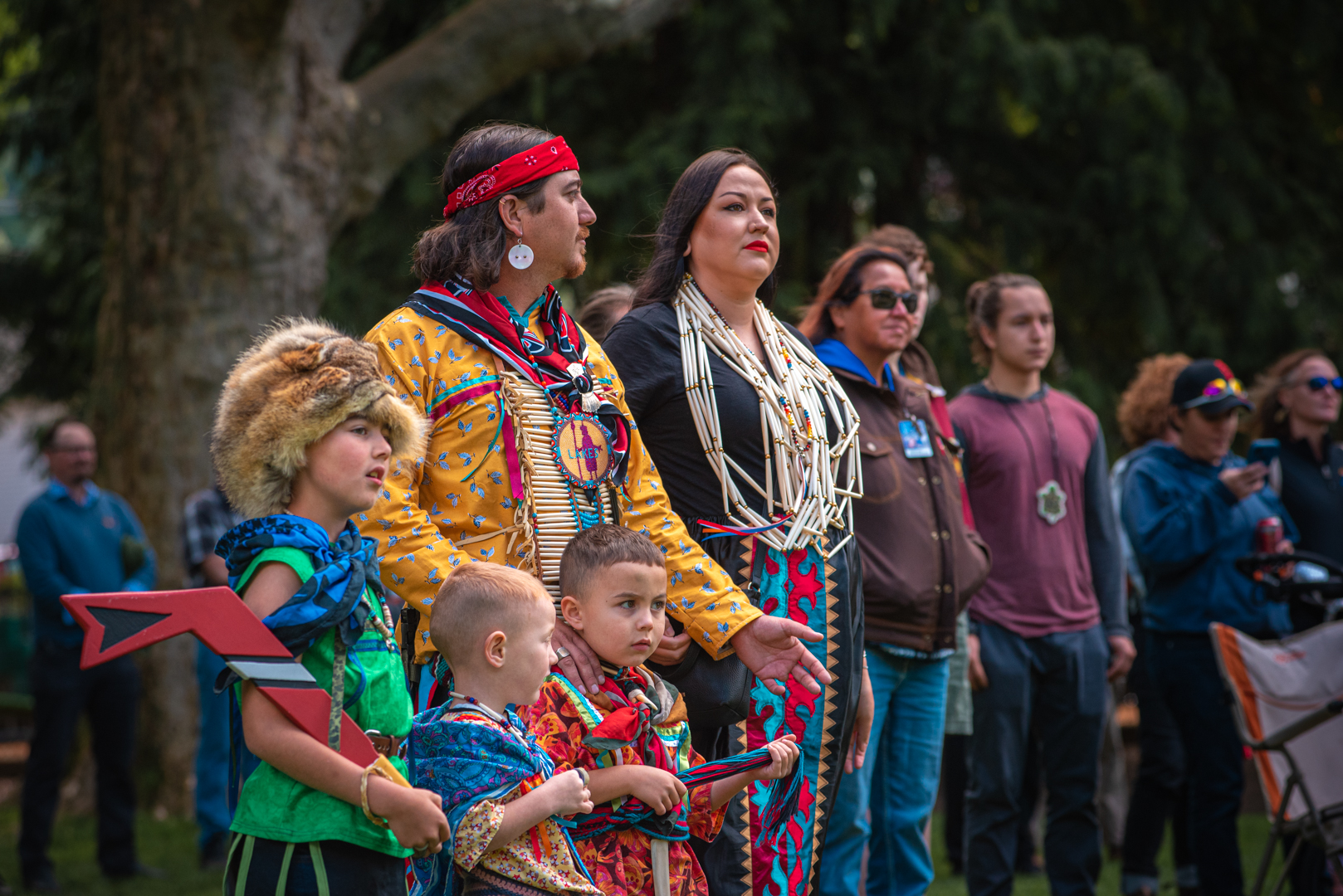
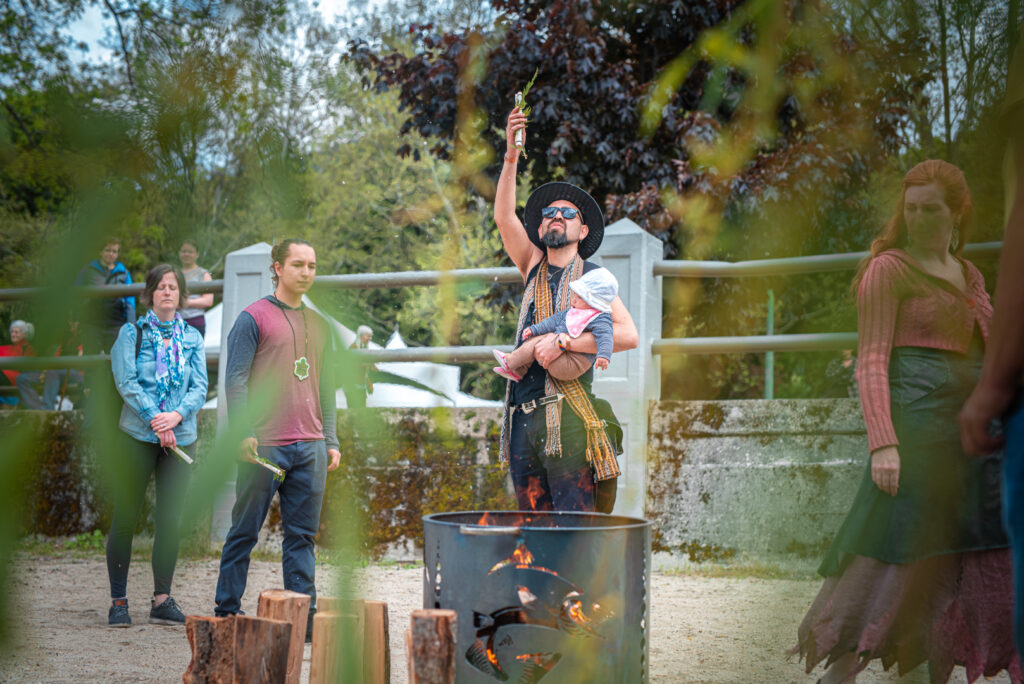
The Sinixt, which means ‘people of the place of the bull trout,’ have territory that spans from Revelstoke, B.C., to Kettle Falls in Washington. Due to the violent colonization carried out by the Canadian and U.S. governments, many Sinixt were displaced and confined to a reserve in Washington and called the Arrow Lakes Tribe. For a long time, they were treated as a U.S. tribe. In 1956, the federal government declared them ‘extinct’ in Canada.
They fought for recognition in B.C. for decades, but were denied each time by the Crown. When the case finally made it to court, the Crown argued the Sinixt were ‘foreign’ and that their ancestors voluntarily left.
Boyd is Sinixt, a member of the Arrow Lakes Tribe and Arrow Lakes’ cultural facilitator for the Confederated Tribes of the Colville Reservation. She remembers feeling they would push forever, but were “never going to win.”
But last April, she stood in the courtroom as the Supreme Court of Canada recognized the Sinixt had constitutionally protected Indigenous Rights to hunt and harvest in their territory. Now, when Sinixt citizens cross the border, they have the right to carry out these practices.
There’s a “renewed sense of hope” in the community since the ruling, Boyd said. “That the truth really does matter. That continuing to try really does matter.”
The Sinixt are celebrating the anniversary with a 350-kilometre canoe journey across their territory, launching from Revelstoke June 12 and ending with a salmon ceremony at Kettle Falls June 17.
As they prepare for this journey, the words of late Sinixt leader Virgil Seymour, who pushed for recognition for decades, are ringing through Boyd’s head: “our people are coming home, and I think it’s about time the salmon do too.”
The Sinixt finally got their day in court after Rick Desautel, a Sinixt citizen and member of the Arrow Lakes Tribe, purposefully shot an elk in Sinixt traditional territory near Vallican, B.C., and called and reported himself to the conservation officer service in 2010. He was charged (but never arrested) for hunting in Canada as a ‘non-resident.’ This was all strategy by the Sinixt to finally get their Indigenous Rights tested in court.
They won at the provincial supreme court, but the Crown challenged them again and again until the case reached the highest court. The Crown argued that Sinixt being allowed to exercise Indigenous rights in Canada was “incompatible with Canadian sovereignty.”
(To read more about the specific arguments made in court by the Sinixt, government and other First Nations as intervenors, read our first story about the Sinixt.)
During the October 2020 hearings, Desautel and Boyd had to stand outside the courtroom where justices and lawyers debated whether they were extinct, due to COVID-19 capacity restrictions.
But when the ruling was made, in April 2021, they got to be there.
“It was kind of a surreal moment,” Boyd said. “To be in the courtroom when they said that the extinction was not true, and that clearly we were there — we existed, and that it was wrong what happened. You never expect to hear that. I remember just being very emotional about it.”
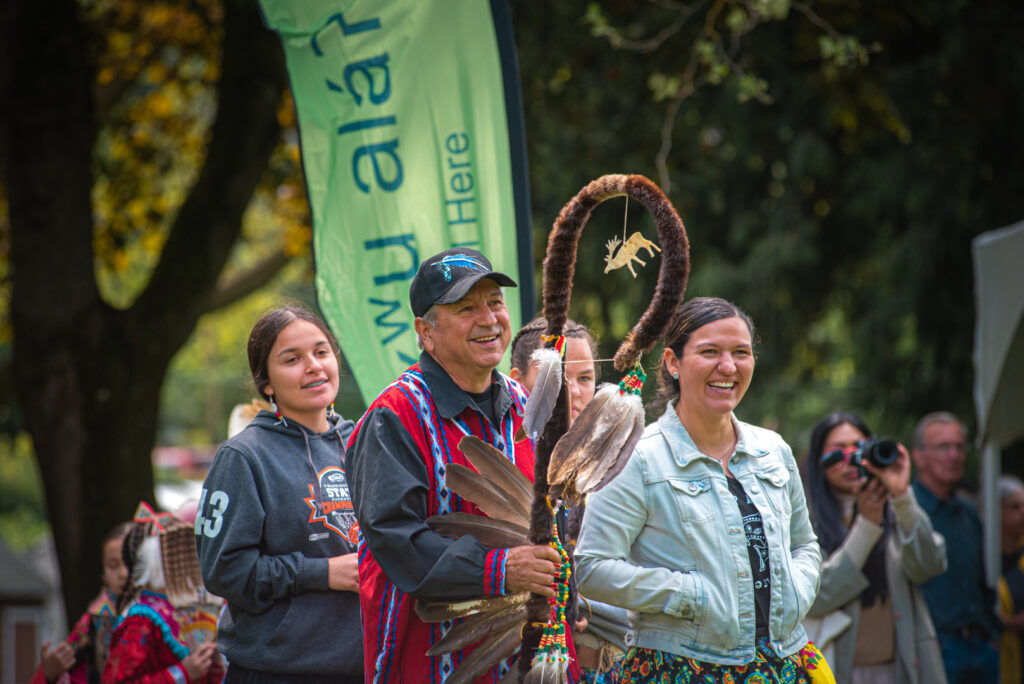
Today, Sinixt people can hunt and harvest in B.C., but Boyd said it’s also made a significant, less tangible impact on the community.
“It’s more than just a judgment … it’s also a point of hope,” she said.
Desautel was honoured at the weekend’s events. “I’ve shaken more hands today than most politicians,” he joked.
Desautel said he was willing to risk being put in jail and dedicate years of his life to proving the Sinixt existed so that future generations wouldn’t have to.
“It’s a monumental decision and I’m very proud,” he said.
Many people say Sinixt how it’s spelled in English — Sin-eye-kst — but Boyd said this is an Anglicized version, and the correct pronunciation is sin-eye-ch-kiss-ta, emphasis on the ‘eye’ and fast on the ‘kiss-ta.’
Sinixt is spelled sn̓ʕaýckstx in their language, n̓səl̓xcin. According to Boyd, Sinixt literally means place, spotted fish and people. The Arrow Lakes Tribe is often used synonymously with the Sinixt, though others identify as Sinixt as well.
In 1953, Annie Klome Joseph, the last person officially listed in the government of Canada records as being a member of the Arrow Lake Band, died. Despite there being Sinixt people scattered throughout Canada and the U.S., in 1956, amid planning for the Columbia River Treaty dams which flooded Sinixt territory, the government declared them extinct.
“They didn’t expect us to be here anymore but we are,” said Boyd after reading parts of the extinction declaration to the crowd. She then shared that they had made 300 copies of the declaration and bundled it with cedar. Led by Desautel, she invited everyone to head down to the water to burn the papers that declared her people extinct over half a century ago.
When it was her turn to approach the fire, Boyd paused. “I talked to it in our language,” she said. “I thanked it and I let it go because its work is done, its work is over and we’re home.”
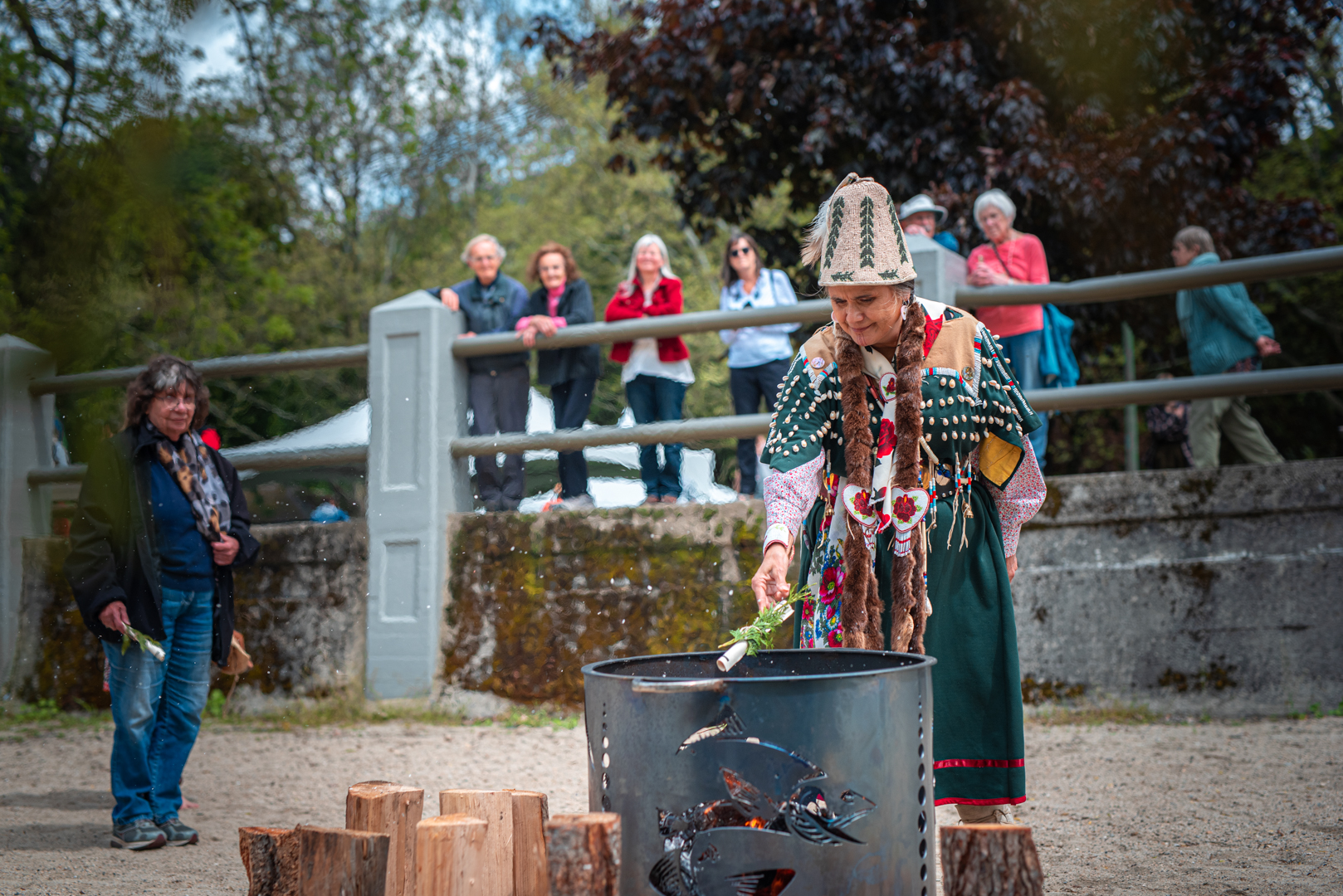
Following the ceremony Sinixt artist Ric Gendron unveiled a mural downtown depicting sweat houses, spirit people and salmon weaving through the landscape.
After weeks of preparation, Gendron spent six days working with a crew of people to bring the mural to life.
“There’s been a lot of work,” he said, adding that he hopes the mural makes people happy.
“Even if they don’t know the story, some of the images hopefully make some people smile and just liven up the street in this city.”
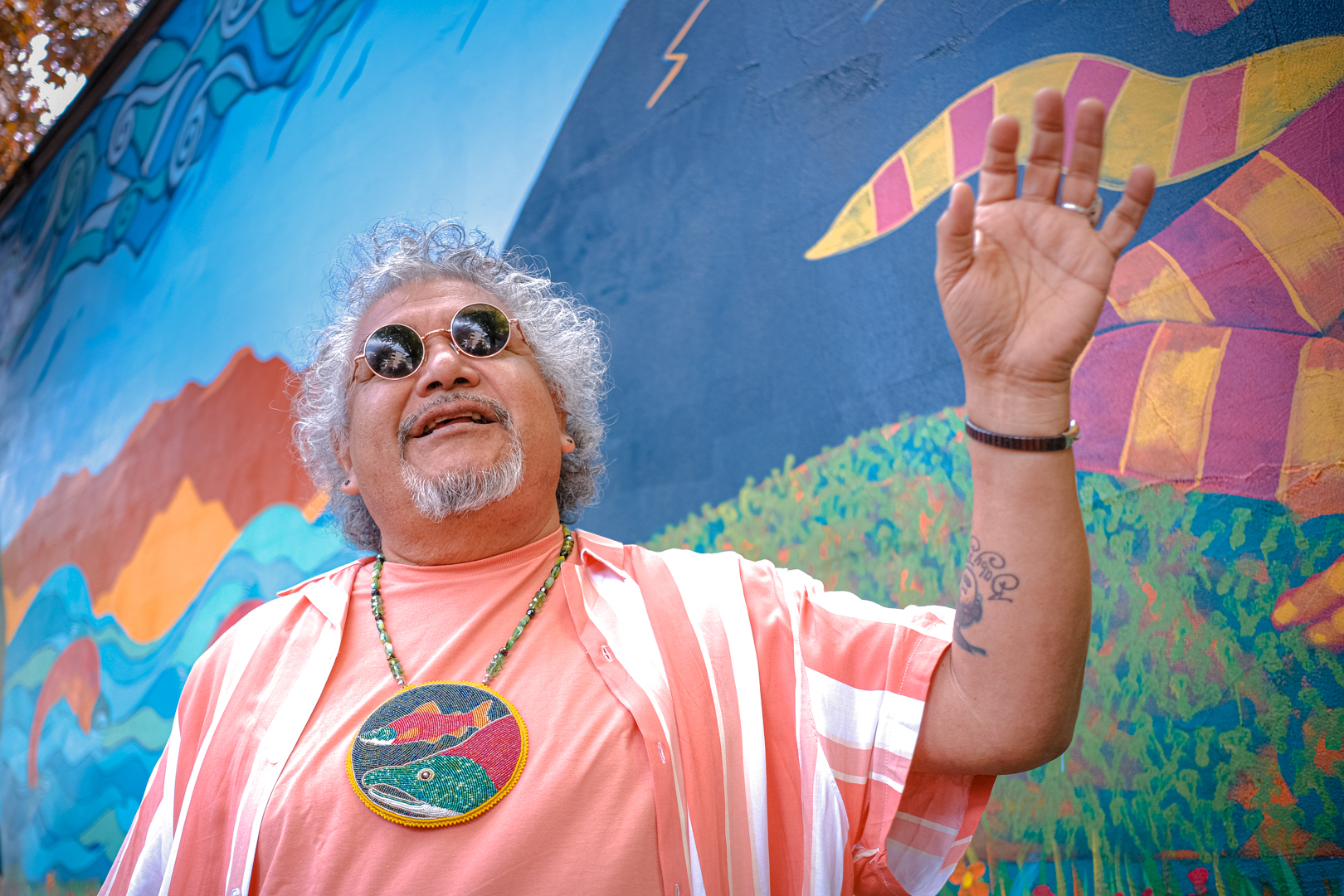
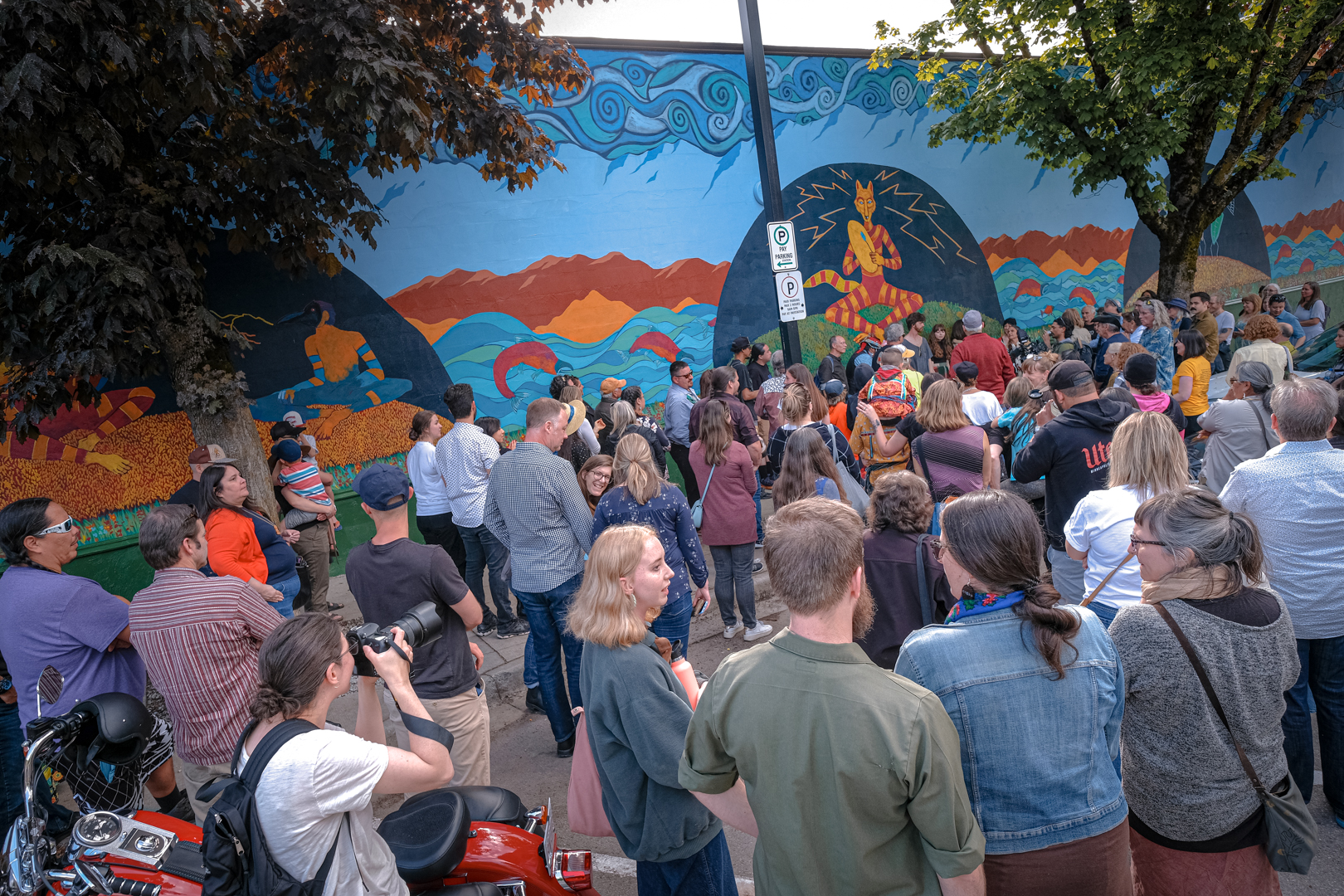
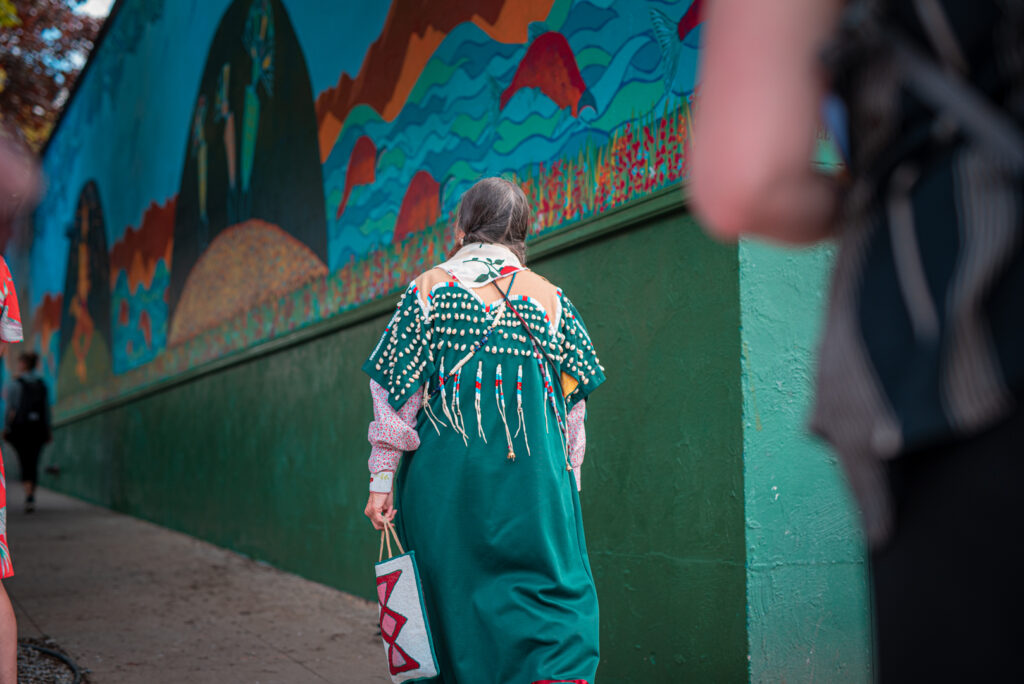
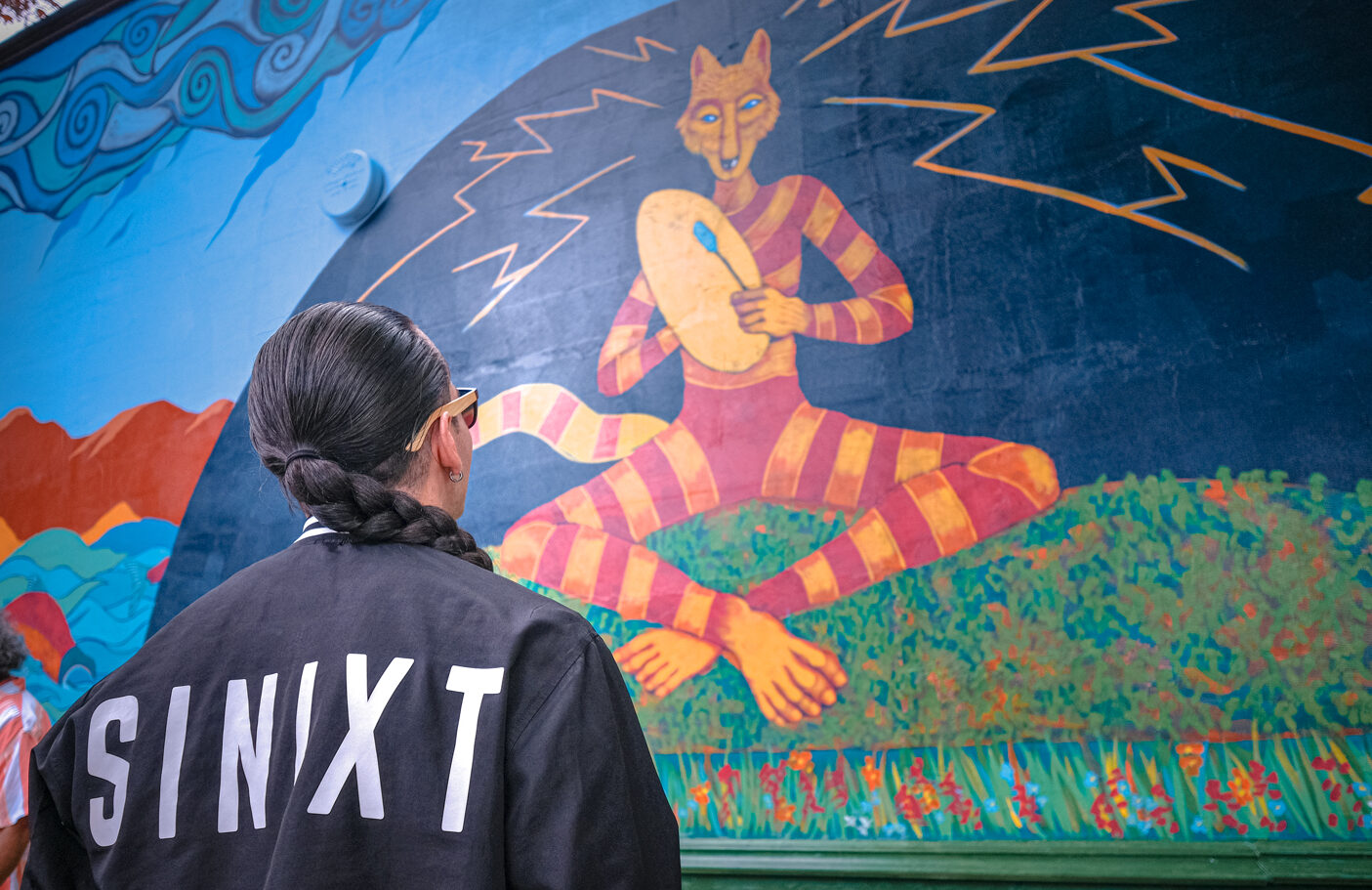
The mural unveiling was followed by a shared meal. Then, people were invited to The Capitol Theatre where Stevey Seymour shared poems, singer-songwriter Tony Louie performed a set and Derrick LaMere’s shared his documentary, Older than the Crown, publicly for the first time.
“For us all to be able to come up and celebrate together and pray and be happy together, it elevates our joy. I don’t really have good words to explain that, in our language we’d just say qwamqwamt, so wonderful,” Boyd said.
A feeling of hope extends to the salmon ceremony the Sinixt will be holding at the end of their canoe journey at Kettle Falls — a ceremony they have done since time immemorial. The ceremony to call the fish home has always carried deep meaning, but it has become all the more poignant since the completion of the Grand Coulee Dam in 1942 blocked salmon from the upper reaches of the Columbia River.
The Columbia, a significant food source for First Nations along the river, runs from Columbia Lake in southwest B.C. through Washington before draining into the Pacific Ocean from the Oregon coast. Construction of the Grand Coulee Dam led to the loss of 1,770 kilometres of salmon and steelhead habitat.
“The fish were, at that point, doomed — extirpated from the uppermost watershed where a lot of the best salmon spawning habitat was and where Sinixt territory was,” writer and researcher Eileen Delehanty Pearkes told The Narwhal. She attended the celebration and has a working relationship with the Sinixt.
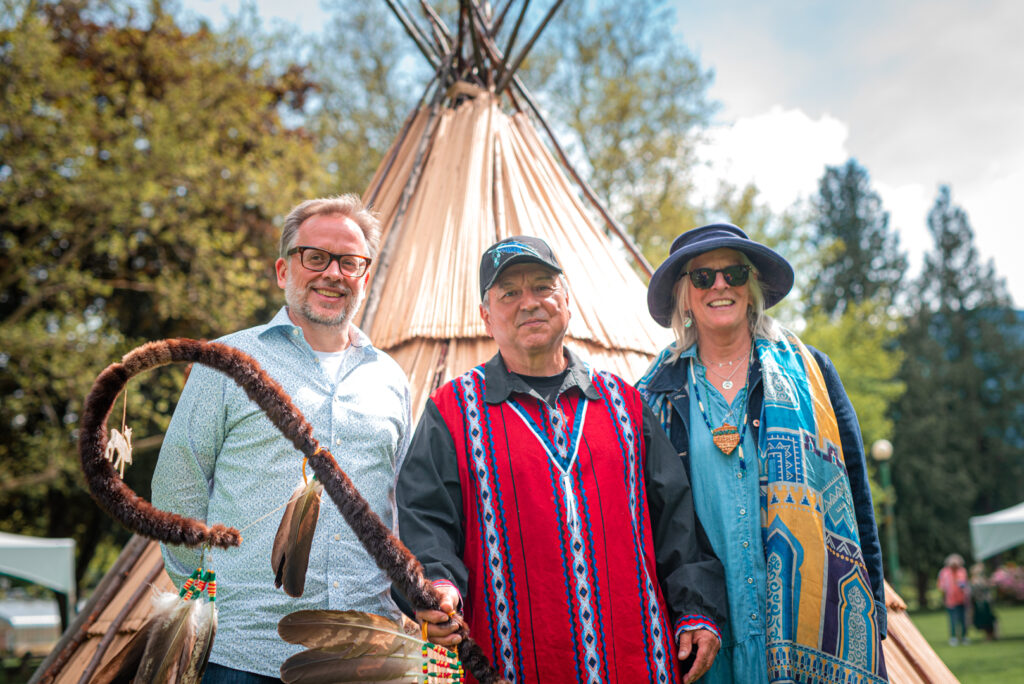
There are more than 400 dams in the Columbia and its tributaries, according to the Columbia Basin Trust.
“Each dam in place affects water flows, and turns the river more and more toward being an impoundment of shallow lakes rather than a free running river,” Pearkes said.
Combined with rising water temperatures due to climate change, salmon in the river have declined.
Boyd said she struggled with calling the salmon home when conditions are so dire.
“Who are we to call the salmon home to waters that are polluted?” she said. “Who are we to impose that onto family?”
She said instead of calling the salmon, they have been praying for them instead.
“That’s the best that we can do,” she said.
Since 2019, the Colville Tribes have been working to reintroduce salmon above the Grand Coulee Dam in partnership with the four other members of the Upper Columbia United Tribes (the Coeur d’Alene Tribe of Indians, Kalispel Tribe of Indians, Kootenai Tribe of Idaho and Spokane Tribe of Indians).
In October 2020, just weeks after Boyd went to Ottawa for the Supreme Court hearings, the Colville tribes announced that salmon had successfully spawned above the dam — for the first time in 80 years — before being released in the Sanpoil River, a tributary of the Columbia.
“We still have a lot of work to do,” she said. But she feels they are “on the right path.”
The journey they are embarking on from Revelstoke to Kettle Falls is one of the biggest ones they have undertaken in recent years. Boyd said the tribe hopes it’s only the beginning: they want to help organize a canoe journey that “brings along every tribe throughout the Columbia to honour salmon restoration.”
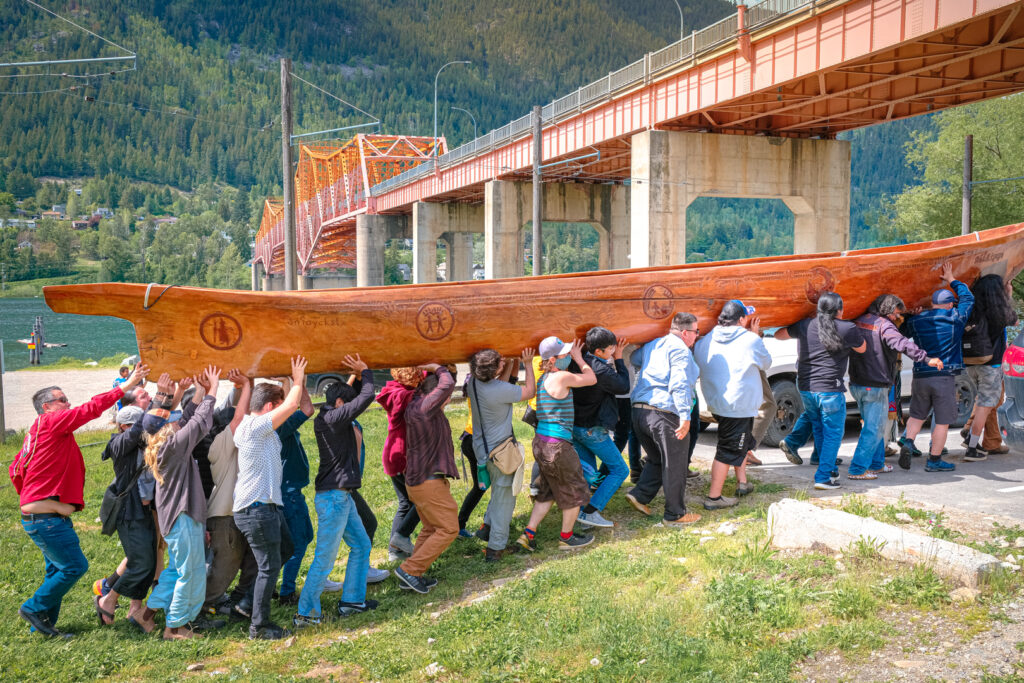
And she hopes those who participate in the journey — whether they are the support crew driving, the safety boaters or paddling the dugout canoe — leave the experience feeling strong.
“There’s a reason that we carry a lot of pain, and that pain, we can let it go,” she said. “We have ancestors that did so much more than what we have ever done, so whatever it is, we can do it.”
— With files from Lindsay Sample
Get the inside scoop on The Narwhal’s environment and climate reporting by signing up for our free newsletter. A $335 million funding commitment to fund...
Continue reading
In Alberta, a massive open-pit coal mine near Jasper National Park is hoping to expand...

A trade war could help remake B.C.’s food system, but will family farmers be left...

First Nations are leading efforts to make sure lake sturgeon can find a home in...
